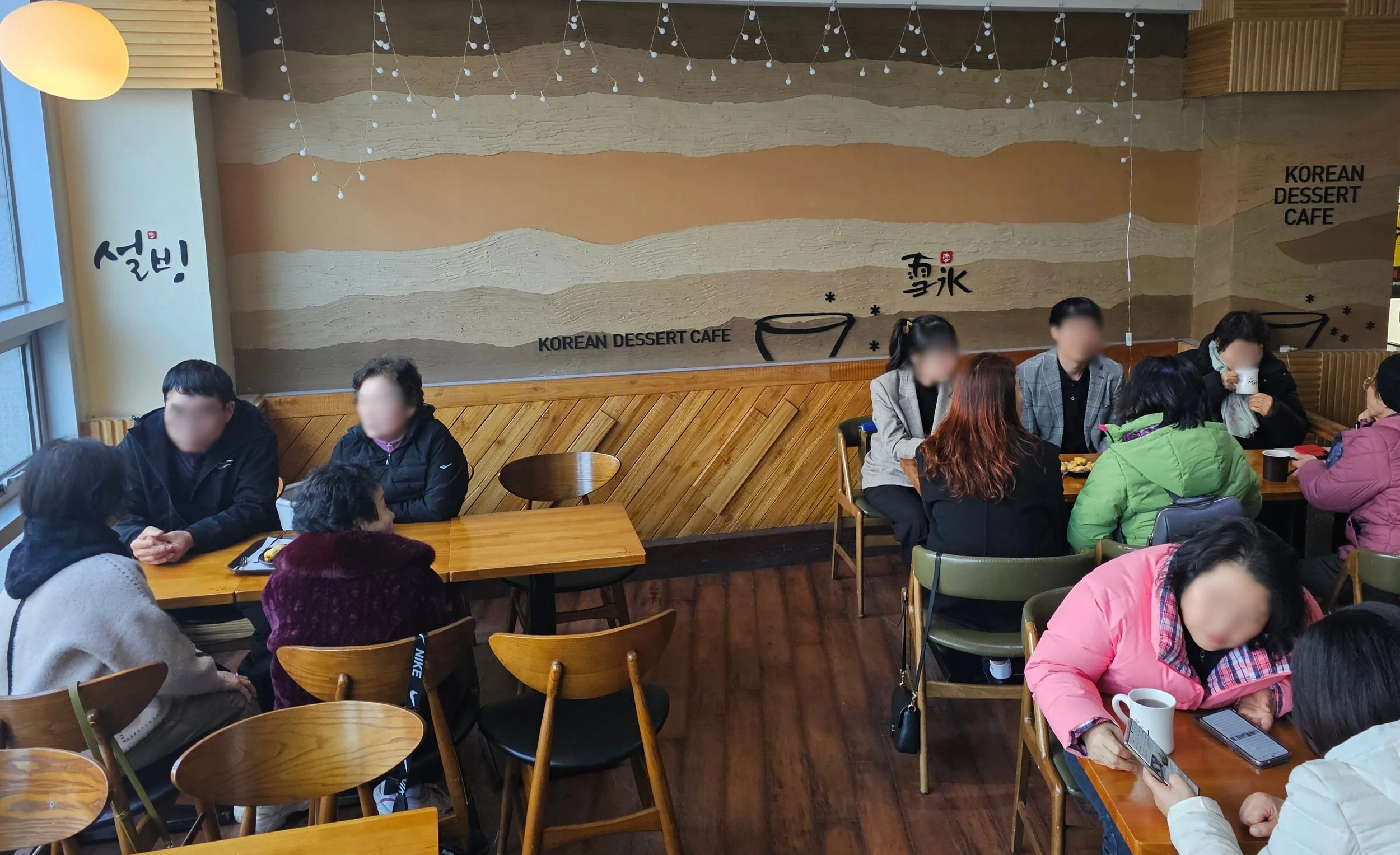The North Koreans who come to our Elim Community classes often appear as if they have their lives together. Unlike those who come to Elim House, they are not in desperate situations. Some have retired and are living comfortably. But every once in a while, we are reminded of the weight that each carries from their dangerous journey to freedom. After one of our Seoul English classes this year, we were reminded of how vital these classes are in facilitating time together with others who have walked similar paths.
We took the class to a nearby cafe so that we could get to know them, and, more importantly, so that they could get to know each other. As our students conversed, our staff heard a loud gasp from a corner of their shared table. Two refugees, both in tears, had found out that they were from the same home town.
One of the refugees in this conversation, Michael, said to the other, “I feel so guilty for the things that I did to survive.” His new friend said, “You don’t have to feel guilty, you did what you had to do to survive.”
Even when enraptured by the serendipity of the moment, Michael could not shake his guilt. North Koreans are like glaciers. We can see very little above the surface, but we know that there is a larger story underneath what’s visible. Michael agreed to tell us more about his story provided we change his name and conceal some of the details of his life.
Surviving North Korea
He was in the army when the realities of the famine swept across the country. Michael had recently been discharged with a friend and did odds and ends to survive. He realized that he could not make a living in North Korea in such circumstances. He tried to convince his family to leave the country with him but they refused. So he convinced his friend from the army to go with him.
After crossing into China, Michael and his friend were able to find small jobs. Michael’s friend tried to get his two children into China but was unsuccessful. So his friend decided to go back to North Korea and reunite with his children. Michael heard that his friend made it back to North Korea but was taken away to a prison camp. This happened over 20 years ago and Michael does not know if he ever made it out of prison. Many North Koreans die in brutal prison camps. Some of those who are repatriated are executed.
Encountering Jesus
In our short interview, it was clear that Michael felt an immense amount of guilt. Even as he spoke of how he met his wife and started to attend church, he inserted a statement of self loathing. He met his wife in China. She was a believer and he was not. He spoke of his first experience at church in China, “It was my first experience in a worship service. I couldn’t understand what they were talking about. My wife had already accepted Jesus Christ at the time and I hadn’t. After coming to South Korea, I didn’t go to church for more than 20 years. It’s been only two years since I started going. I’m repenting a lot.”
Michael attends English class because his children have been learning English and he wants to practice with them. He attends class with his wife. Like many North Korean men, he is stoic on the outside. But this quickly melts away when he’s around his wife. Unlike many North Korean men, Michael is outwardly affectionate and loving toward her.
Our ministry to North Koreans is much more than free classes. Gathering times throughout the week is a way to encourage relationships and community. As they find their community, we hope that they are able to reassure one another the way that Michael and the North Korean neighbor he met in class did.
“You don’t have to feel guilty, you did what you had to do to survive.” This statement holds much more weight from someone who also went through the hell of the famine. As we gain trust and build relationships with these traumatized people, it is our hope that we can point them to Christ, the wounded Savior, and the only one who can heal their deep wounds.


